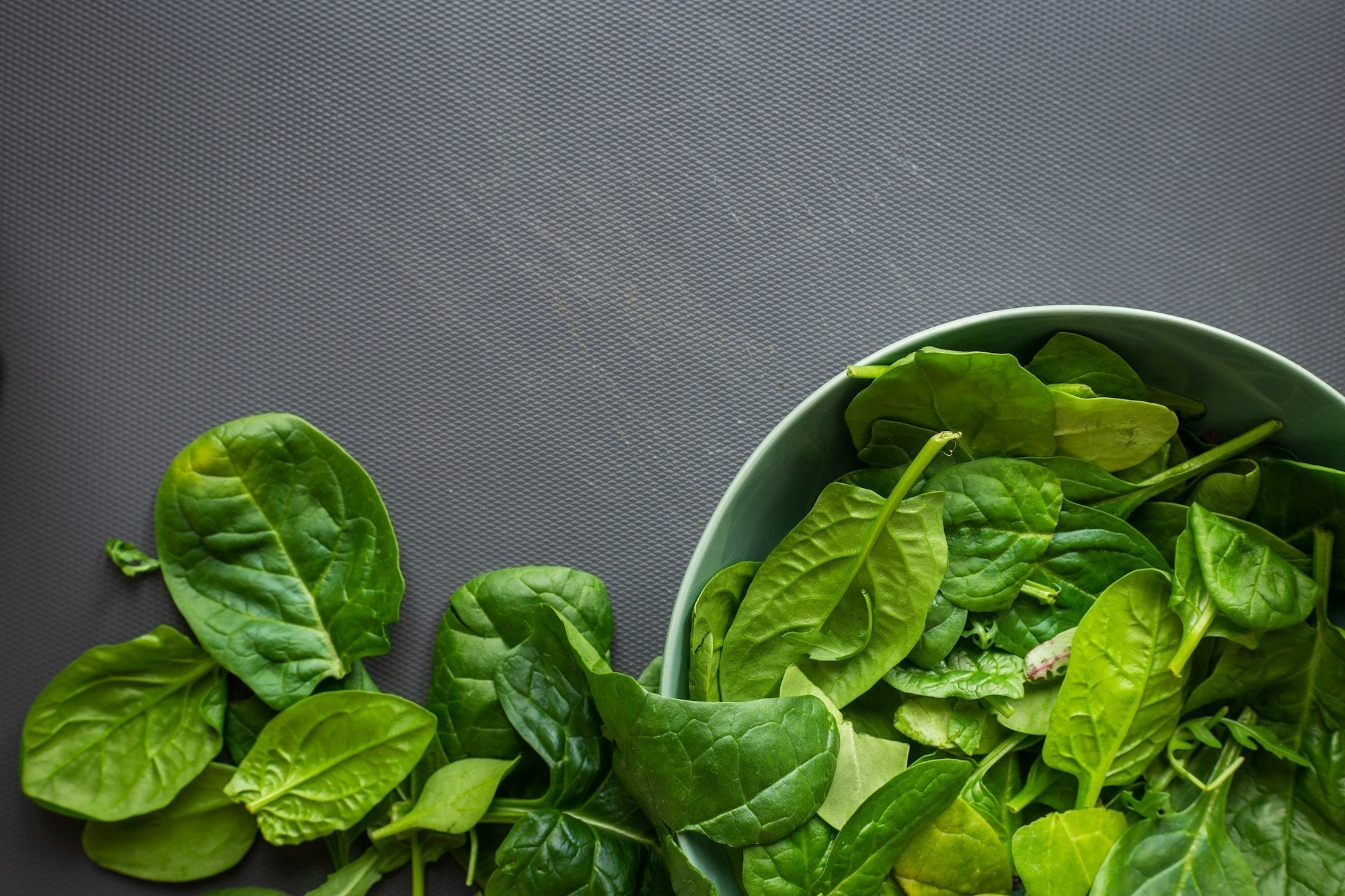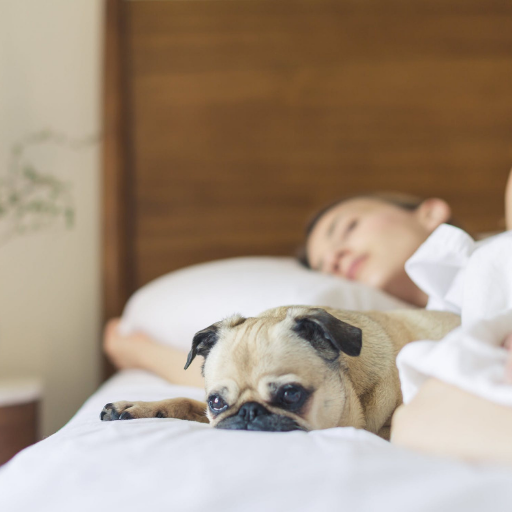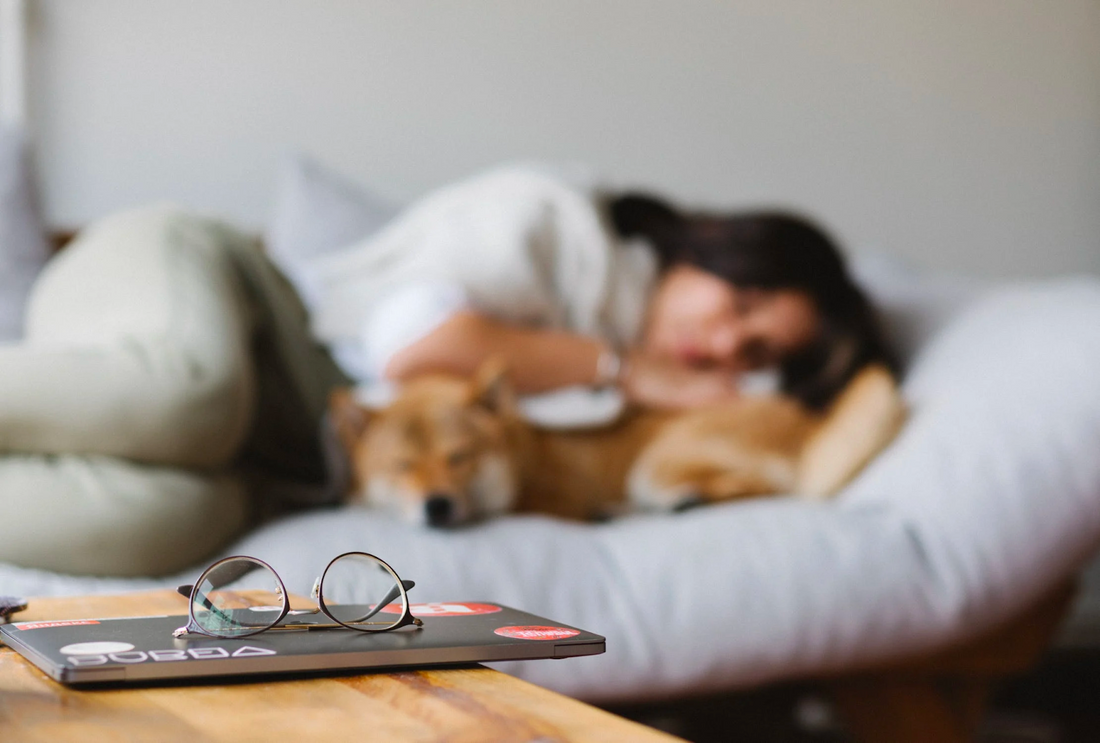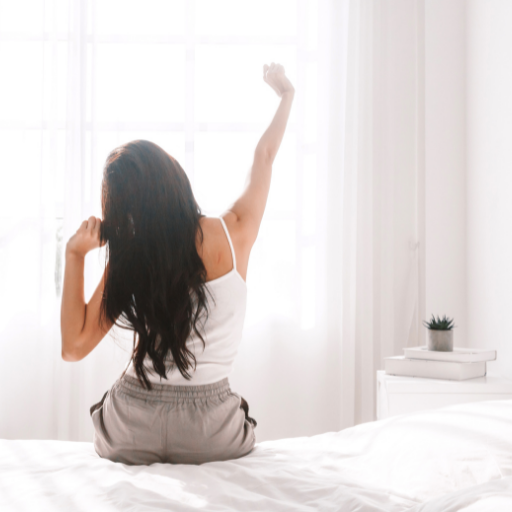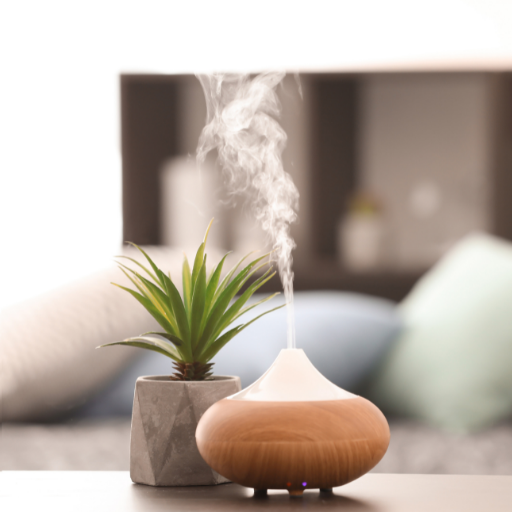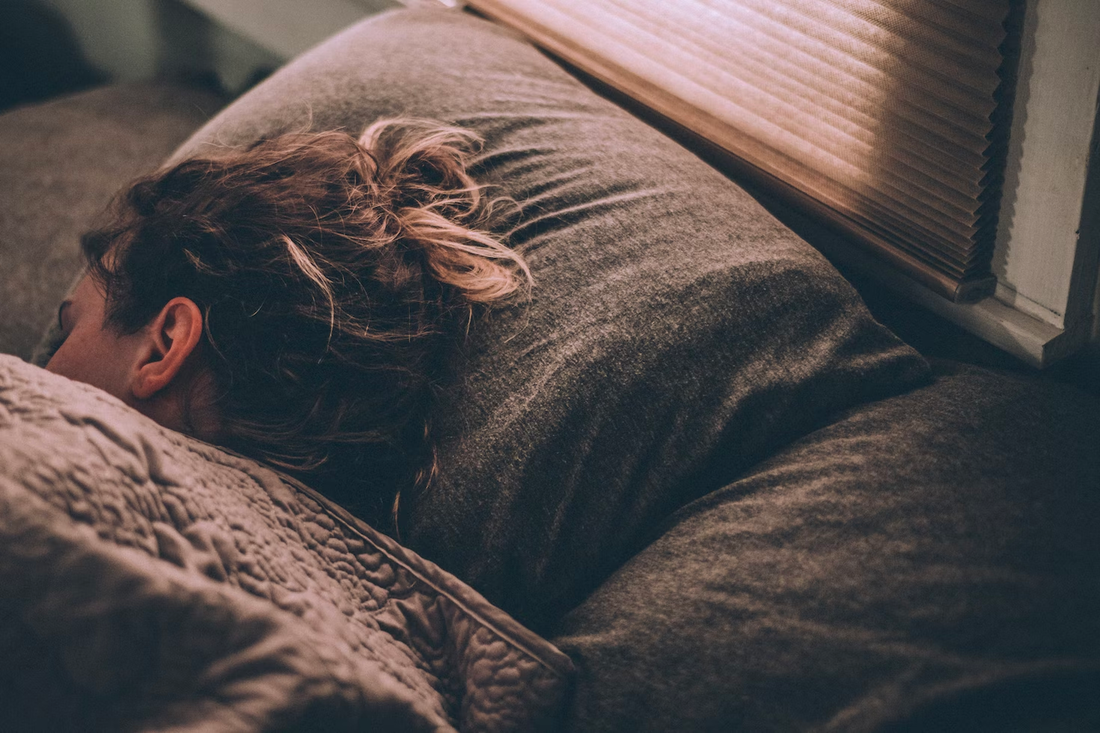Wellness Blog
The content on this blog is for general informational purposes only and is not a substitute for professional medical advice, diagnosis, or treatment. Always consult your healthcare provider before making changes to your health routine or taking new supplements.
The Ultimate Guide to Napping: Benefits & Tips For A Good Sleep
Is it bad to nap during the day? How long should you nap for to feel refreshed? You'll find all the answers you need right here.
Learn moreTips to get restful sleep at night
Have trouble sleeping? Sleep is vital for staying healthy. It aids in the recovery and restoration of the body and the brain's functions. Not getting enough sleep can result in poor mental performance and physical well-being.However, getting a good night's sleep presents its own set of challenges. Sleeping disorders and problems occur in 4 out of 10 Australians (1), but there are measures that can be taken to improve the quality of sleep we receive. Having good sleeping habits and tweaking your lifestyle a bit can significantly make your nights more comfortable.How to sleep wellHere are a few tips you can follow to get more refreshing sleep at night:Tip #1: Stick to a good scheduleTry to aim for at least 7 hours of sleep to avoid lack of sleep and to get better quality of sleep. Getting used to a regular bedtime makes it easier to prime your body for sleep. To have your measure of healthy sleep every night, you will need to reset your sleep-wake cycle.It is recommended to keep to the same hours of bedtime as a person's sleeping cycle can be affected by plenty of factors, including changes in each season. Some sleep cycles last longer during the winter, with summer having shorter cycles (2). Keep a sleep schedule and tuck yourself in at the same time everyday.Tip #2: Clear your mindIt is more difficult to sleep if your mind remains busy. For instance, even if you aren't doing work in bed, continuing to think of work keeps you awake. Instead of lying down in bed and thinking of work, try writing down everything you need for tomorrow and leave it at that. Close to bedtime or about 30 minutes prior, pull down your blinds and keep your room dark and comfortable, put on some soothing meditative music, plus a diffuser with lavender oils works like magic in getting those eyelids to droop. Be indulgent about making a fuss over your sleep routine. Sleep hygiene is putting yourself first, ahead of all distractions and optimizing your sleep schedule. Follow the simple routine enumerated above to ensure you have no disrupted sleep or encounter none of the sleep problems.It can also help to do some relaxing exercises. You do not need to stand up for these. Keep a relaxed body, wiggle your toes, and gently move around your arms and legs. You can also consider meditation to help with mindfulness. Focusing on breathing or the classic sheep counting may also help you ease into a good night's rest.Tip #3: Reduce screen timePart of how to sleep better is letting go of distractions. It is a good idea to keep cell phones, laptops, televisions, and anything with a screen away if it isn't urgent. Staring into the bright light from a screen can delay and decrease total sleeping time (3). This is due to the psychological stimulation caused by the exposure to light, which keeps the brain alert and awake (4).Tip #4: Be mindful about what you consumeThe food you eat is known to affect the quality of your sleep you receive (5). Consuming fruit, fatty fish, and milk can significantly improve your sleep duration. This is due to certain vitamins like vitamin D and B-group vitamins which help in serotonin production, which provides better sleep quality (6). And definitely no big meals before bedtime. A light, fulfilling supper at least a few hours before bed, works well to prevent the brain from interpreting it to be time for wakefulness.Taking herbal tea may also be helpful. For instance, some people take Ashwagandha, a plant extract found in tea, for better sleep. Ashwagandha is used in Ayurvedic medicine as a multipurpose treatment. It promotes refreshing sleep because of its alkaloids, which are considered to be a sedative (7). This sleep medicine can also be taken in the form of supplements to help you get a good night's rest.Getting a good night's sleep can be tough. But Vitable has you covered! Ashwagandha for sleep comes recommended by medical practitioners as a safe choice to get you back to bed. You now get the chance to customise your vitamin packs to help you sleep better at night. If you're looking for delivery as well, we cover this in the personalised vitamin package. Get to know more about Ashwagandha and its great effects on your sleep, stress, and overall quality of life.References: Healthdirect. Sleep. Healthdirect. Published August 2020 on https://www.healthdirect.gov.au/sleep. Accessed September 12 2021. Banks, Siobhan & Dinges, David F. Behavioral and physiological consequences of sleep restriction. National Institutes for Health. Published August 15 2007 on https://pubmed.ncbi.nlm.nih.gov/17803017/. Accessed September 12 2021. Hale, Lauren & Guan, Stanford. Screen time and sleep among school-aged children and adolescents: a systematic literature review National Institutes for Health. Published June 2015 on https://pubmed.ncbi.nlm.nih.gov/25193149/. Accessed September 12 2021. Munezawa, et al. The association between use of mobile phones after lights out and sleep disturbances among Japanese adolescents: a nationwide cross-sectional survey. National Institutes for Health. Published August 1 2014 on https://pubmed.ncbi.nlm.nih.gov/21804663/. Accessed September 12 2021. St-Onge, Mikic, Pietrolungo. Effects of Diet on Sleep Quality. National Institutes for Health. Published September 7 2016 on https://www.ncbi.nlm.nih.gov/pmc/articles/PMC5015038/. Accessed September 12 2021. Hansen et al. Fish consumption, sleep, daily functioning, and heart rate variability. National Institutes for Health. Published on May 15 2014 on https://pubmed.ncbi.nlm.nih.gov/24812543/. Accessed September 12 2021. Vitable. Ashwagandha Plus. Vitable. Published (n.d.) on https://research.get.vitable.com.au/ashwagandha-plus. Accessed September 17 2021.
Learn moreWhy can't I sleep? Top 8 tips to get more sleep
Do you have trouble falling asleep no matter how exhausted you are? Are you feeling tired throughout the day? More than 1.5 million Australians experience sleeping problems each day. Sleep is one of life's biggest necessities, yet it rarely gets the attention it deserves.
Learn moreThe important link between quality sleep and reduced stress
Stress is a normal human reaction that happens to everyone. But the severity and the way in which you cope with stressful moments in life is what will impact your health over time.Restful sleep is one of the best avenues for fighting stress due to the special link that sleep and stress share. This article showcases tips on how to manage and reduce stress, poor sleep issues, sleep disorders, hours of sleeping, quality of sleep, sleep deprivation and most importantly how to fall asleep!Effects of sleep on stressGood quality sleep provides a chance for our bodies to slow down and recover both physically and mentally. Here are some of the effects of sleep on stress relief.Sleep and moodStudies show that lack of sleep can affect an individual's mood, causing them to be more emotionally sensitive to stressors. If you're sleep deprived, you might find yourself quick to feel angry, irritable, lonely, or downcast. Lack of sleep leads to stress; The stress hormone activates anxiety that can raise cortisol levels and disrupt the functioning of the nervous system, eventually leading to innumerable health problems (10). When tired, it's also more difficult to move on from these emotions as the day progresses (1).In contrast, when you get enough sleep, you not only wake up feeling refreshed, but also have an easier time maintaining a positive mood or bouncing back from emotional stressors when you encounter them (2).Re-energising for the dayWhen you have a long day ahead, your first instinct might be to fuel up with a cup of coffee. Coffee provides an external source of energy whereas sleep works naturally to give your body the energy it needs to last throughout the day.Sleep allows us to recharge, giving our brains the chance to consolidate memories so that you can effectively remember and learn from the day's events. It also helps us to organise information in a useful manner that could be helpful in performing tasks more efficiently, and to help refuel our decision-making tank. This allows us to meet the day with good judgment and mental clarity at work, school, or even in social settings (8).Minimising physiological manifestations of stressOur body exhibits physiological manifestations of stress when it's tired and in need of stress relief.Stress, especially chronic stress, can cause musculo-skeletal issues. This is because stress hormones that remain at high levels when our bodies are under chronic stress make our muscles tense up and stiffen for excessive amounts of time. Getting enough sleep allows your body to decompress and your mind to relax.The association between sleep and stress is also apparent in our digestive system. If you constantly lack sleep, you can become more susceptible to developing digestive imbalances such as when bad gut bacteria overpowers good gut bacteria. And healthy digestion relies on good bacterial balance in the gut.Stress relief also becomes a goal when your cardiovascular system becomes dysregulated. Frequent exposure to stress and not getting enough sleep might mean that your blood pressure is constantly elevated, a state that makes your heart work double time, increasing your risk of developing cardiovascular diseases (9).Meditation and breathing techniques as stipulated in yoga, stabilise heart rate and reduce stress (11).Supplementation for stress relief and sleepWhile nutrients are abundantly available through a healthy diet, many might not be receiving them sufficiently through diet alone. Supplements can be taken alongside a well-rounded diet to help improve sleep and support stress management. Here are some of the supplements you can consider for better sleep:AshwagandhaAshwagandha is a traditional medicine commonly used for stress relief as it supports healthy stress response in the body and enhances body adaptation to stress (3).B complexVitable's Vitamin B Complex supplement supports healthy stress response in the body. It's composed of all eight essential B vitamins, which, when together, can enhance their benefits for stress relief (4).Ginkgo and BrahmiGinkgo and Brahmi are two of the oldest herbal stress remedies in the world that have gained popularity in the West. Combined as a single supplement, they can relieve symptoms of stress and enhance the body's adaptation to stress (5).MagnesiumChronic stress depletes magnesium levels, and at the same time, a magnesium deficiency can exacerbate the effects of stress (7). As magnesium is not a substance the body produces on its own, you can ensure to consume sufficient amounts of it through a healthy diet or supplementation.Vitamin B12Vitamin B12 maintains energy levels, a benefit that is strengthened when combined with proper sleep or compromised when we're sleep-deprived. Additionally, this vitamin supports our information processing capabilities and other cognitive functions, both of which are necessary in our day-to-day living and affected when we don't sleep well or enough.With this information, you can put into practice active measures to maintain the delicate relationship between sleep and stress. Vitable vitamins offer you safe and effective products formulated for stress relief when paired with a healthy diet. You get to put together custom vitamin packs for a vitamin subscription in Australia that comes with vitamin delivery right to your doorstep.Find out more about other areas that the above supplements can help you with:Ashwagandha | Magnesium | B complex | Ginkgo Brahmi | Vitamin B12*Always read the label. Follow the directions for use. If symptoms persist, talk to your health professional. Vitamin and/or mineral supplements should not replace a balanced diet.References: Get Sleep. “Sleep and Mood”. Last reviewed on December 2008 on https://healthysleep.med.harvard.edu/need-sleep/whats-in-it-for-you/mood. Accessed September 23 2021 Head To Health. “Sleep”. Last reviewed on July 2019 on https://www.headtohealth.gov.au/meaningful-life/physical-health/sleep. Accessed September 23 2021 Vitable. “Ashwagandha”. (n.d.). https://research.get.vitable.com.au/ashwagandha-plus. Accessed September 23 2021 Vitable. “B Complex”. (n.d.). https://research.get.vitable.com.au/b-complex. Accessed September 23 2021 Vitable. “Ginkgo & Brahmi”. (n.d.). https://research.get.vitable.com.au/ginkgo-brahmi. Accessed September 23 2021 Vitable. “Calcium Plus”. (n.d.). https://research.get.vitable.com.au/calcium-plus. Accessed September 23 2021 Boyle, N., et al. (2017). The Effects of Magnesium Supplementation on Subjective Anxiety and Stress—A Systematic Review. https://www.ncbi.nlm.nih.gov/pmc/articles/PMC5452159/ Accessed September 25, 2021 American Psychological Association. (n.d.). Stress and Sleep. https://www.apa.org/news/press/releases/stress/2013/sleep Accessed September 24, 2021 Sleep Foundation. June 24, 2021. Stress and Insomnia. https://www.sleepfoundation.org/insomnia/stress-and-insomnia Accessed September 25, 2021. https://www.mayoclinic.org/healthy-lifestyle/stress-management/in-depth/stress/art-20046037. Jul 2021. https://www.health.harvard.edu/mind-and-mood/relaxation-techniques-breath-control-helps-quell-errant-stress-response. Jul 2020.
Learn moreTop herbs and food to help you sleep soundly
In our fast-paced world, good quality sleep sometimes feels like a luxury. In Australia, it is estimated that over 1.5 million individuals struggle with some form of sleep problem each day (1).Stress and poor sleeping habits etc lead to sleep disorders. Fortunately, you can make simple fixes to achieve more restful sleep and treat disorders. Clearing your bedroom of distractions or eating specific foods to help sleep, making a sleeping schedule and sticking to it, imbibing herb infusions - like chamomile tea and the use of natural sleeping aids and essential oils like lavender oil sprays to induce sleep, avoiding caffeine and nicotine, no naps out of turn, pack in activities throughout the day and staying away from large meals, all help treat sleeplessness. What you eat plays an important role in your sleep and how well-rested you are each night (2). Valerian root, another herb native to Europe and Asia, is known to promote sleep (11).Combating daytime sleepinessMost Australians experience insomnia in their lifetime, with about one in 10 struggling with mild insomnia at any given point (7).However, chronic lack of sleep or sleep deprivation can have negative consequences on your daytime routine. If you haven't set in place practices for how to sleep well, you may find it extra challenging to be at your best. Studies show that you may find it hard to concentrate or problem-solve, have insufficient energy to socialise and be fully present in activities. You may also become irritable or feel disengaged and uninterested in your daily activities. Lack of quality sleep, if allowed to go on unaddressed, may even increase your risk of developing anxiety and mood-related disorders (7).Following this, you may want to consider how diet can impact the quality of your sleep and the role of supplements in the equation.Foods to help sleep and reduce nighttime restlessnessThe following are food options to help with sleep:Complex carbohydratesComplex carbs provide a supply of glucose that is released slowly within the body (3). This is as opposed to simple carbohydrates that give you a fast, sharp spike of glucose that ends in a “sugar crash”.Complex carbs provide you with a steady supply of energy; this means you're well-fueled during the day when you are most active. As you near bedtime, glucose levels taper off gradually, allowing your body to slow down and for you to feel a sense of tiredness to help doze off easily (4).A diet composed of a lot of simple carbs can also reduce serotonin levels and negatively affect sleep quality. Serotonin is needed to produce melatonin, the main sleep hormone that regulates your sleep-wake cycles and induces restful, quality sleep (2).Complex carbs can be found in legumes, nuts, and potatoes (5), while whole grain varieties of bread, cereal, and pasta are also excellent sources. Try to avoid sugary foods like cookies, cakes, commercial chocolates, ice cream, and most other processed sweets as they're likely pumped with simple carbs.Lean proteinsLean proteins are essential components in any healthy diet and promote healthy sleep since they are rich in tryptophan, a type of amino acid that contributes to serotonin production (2). Prepare more dishes with beef, lamb, chicken, and pork to increase your intake of food to help sleep better. You can also snack on cheese for the same purpose, but opt for the low-fat variety.Medicinal herbsFresh herbs (2) have several therapeutic properties that make them ideal food to help sleep. Chief among them is ashwagandha, a herb that has been widely used in Ayurveda, a traditional system of Indian medicine. It's often consumed as a herbal tea, but many take it as a vitamin supplement.Ashwagandha is classified as an adaptogen. An adaptogen is a substance that helps the body adapt to stressful conditions by reducing the effects of physical, chemical, and biological stressors. It does this by increasing a person's endurance to fatigue and reducing our susceptibility to stress-related disorders, including disturbed sleep, caused by imbalances in the neuroendocrine and immune system (6).Ashwagandha, when consumed as a supplement, or as a food, can enhance sleep quality or deep sleep, and reduce the time to fall asleep.Ashwagandha for sleepTaking ashwagandha as a tea or as a supplement helps promote refreshing sleep.Given its adaptogenic potential, ashwagandha has properties that counter the effects of stress, which may enhance refreshing sleep. Studies suggest that the mechanisms by which ashwagandha relieves stress stem from its moderating effect on the hypothalamus-pituitary-adrenal (HPA) axis that regulates our body's central stress responses. When overstimulated by prolonged and intense stress, the HPA axis may become dysregulated, leading us to stay in a state of over-alertness and unable to reach a state of rest and calm needed for refreshing sleep. A disturbed HPA axis can also stimulate the over-production of the stress hormone cortisol, and when our body has too much cortisol, one of the consequences can be disturbed, restless sleep (8).Ashwagandha also reduces sleeplessness. It contains chemical components called alkaloids that are considered a sedative and this is what gives it its sleep-inducing potential. This may help you avoid broken sleep, which may result in you feeling sluggish or lethargic the next day. When it comes to maintaining refreshing sleep, the goal is the quality, not quantity, of your sleeping hours (9). Most importantly it is a natural herb that helps in staying asleep, without any sleep disturbances, the only thing keeping you away from a good night's sleep.If you're looking for custom vitamin packs that include ashwagandha for sleep, look no further than Vitable Australia whose supplements are tailor-fit to you. Vitable's Ashwagandha Plus formula not only contains ashwagandha but other adaptogenic herbs like Ziziphus and Schizandra that helps the body adapt to stress. In addition to Ashwagandha, you can assemble a vitamin pack of your very own based on your unique needs, complete with a vitamin delivery.References: Reawakening the Nation. (2012). Sleep Health Foundation. https://www.sleephealthfoundation.org.au/component/content/article.html?id=76. Accessed September 09, 2021 Cleveland Clinic. (2020). 5 Foods That Help You Sleep. https://health.clevelandclinic.org/5-foods-that-help-you-sleep/ Accessed September 14, 2021 Mayo Clinic. Carbohydrates: How carbs fit into a healthy diet. https://www.mayoclinic.org/healthy-lifestyle/nutrition-and-healthy-eating/in-depth/carbohydrates/art-20045705 Accessed September 14, 2021 Mayo Clinic. Maximize memory function with a nutrient-rich diet. https://www.mayoclinichealthsystem.org/hometown-health/speaking-of-health/maximize-memory-function-with-a-nutrient-rich-diet Accessed September 14, 2021 Healthdirect. Carbohydrates. https://www.healthdirect.gov.au/carbohydrates Accessed September 14, 2021 National Institutes of Health. (2010). Effects of Adaptogens on the Central Nervous System and the Molecular Mechanisms Associated with Their Stress—Protective Activity. https://www.ncbi.nlm.nih.gov/pmc/articles/PMC3991026/. Accessed September 09, 2021 Healthdirect. Insomnia. https://www.healthdirect.gov.au/insomnia. Accessed September 09, 2021 National Center for Biotechnology Information Search database ( 2020 ). HPA Axis and Sleep. https://www.ncbi.nlm.nih.gov/books/NBK279071/. Accessed September 13, 2021. National Library of Medicine. (2002). Mortality associated with sleep duration and insomnia. https://pubmed.ncbi.nlm.nih.gov/11825133/. Accessed September 09, 202110. Sleep Foundation. (2021). Sleep Latency. https://www.sleepfoundation.org/how-sleep-works/sleep-latency#:~:text=Sleep%20latency%20is%20the%20technical,10%20and%2020%20minutes2 Accessed September 09, 2021 https://www.healthline.com/nutrition/valerian-root#what-is-valerian. Dec 2021.
Learn moreThe Benefits of Taking Ashwagandha for Sleep
Is ashwagandha good for sleep? Learn more about how it can improve your sleep quality and reduce stress. Say goodbye to insomnia and wake up feeling refreshed and rejuvenated with ashwagandha.
Learn moreWhat happens to the body while sleeping: REM and non-REM sleep explained
A busy daily life may result in difficulty getting enough sleep. Sleeping problems are very common in Australian adults, with 4 out of 10 not getting enough good sleep at night (1). Not all people require the same number of hours of sleep. However, the average amount needed for adults is around 7 to 9 hours of sleep each day (2).Inadequate sleep might be caused by lifestyle factors that include work patterns, usage of applications and gadgets, or even environmental reasons such as noisy surroundings. Sometimes, it's also caused by sleep disorders.Read on to learn what happens to your body when you sleep, and how healthy practices, including taking ashwagandha for sleep, can help you.What happens to your body when you sleep?When we fall asleep, the body has the opportunity to rest and relax. The muscles are not in action, and consciousness is suspended. However, brain waves remain active while asleep.The body's circadian rhythm, also referred to as the internal body clock, controls when you begin to feel awake or sleepy. Whenever the body's circadian rhythm becomes disrupted or shifted, this can induce sleep problems and inability to get into deep sleep.REM and non-REM sleepWhat happens to your body when you sleep includes two phases: rapid eye movement sleep (REM) and non-rapid eye movement (non-REM) sleep (3). During the non-REM sleep cycles, the body goes through 4 stages. In the first stage, the body begins to shift between wakingness and sleep, where even the slightest movement can easily wake you up. As it moves forward to the next three stages, eye movement begins to drop, and stop. The body temperature lowers and you begin to fall into a deeper sleep.During the REM stage, the eyes move rapidly. The heart rate may go up, along with your blood pressure, which is where the brain becomes very active even while asleep. REM sleep is the kind where dreaming happens. During this period, the body learns and creates new memories.The body switches between the two phases throughout a whole night's worth of sleep. Adults tend to spend a fifth of their night sleeping in the REM phase, with the remaining hours spent in non-REM sleep.What happens to your body when you do not get enough sleep?When you restrict yourself from getting enough sleep or resting, it can have many negative impacts on your health, particularly to your immune system (4). These problems can be either short-term or long-term. A person's ability to function properly depends on how much sleep they are getting (5). If you aren't able to get enough sleep, or if you have frequent light sleep, or sleep at the wrong times, there's a higher chance that you'll feel more tired when awake. This means you might feel less alert, less awake, and more groggy or absent.Sleep deficiency interferes with your daily routine. It can affect your quality of work and how you interact socially. A lack of sleep may affect cognitive functions such as learning, reacting, and focusing. It also affects your emotions, making you irritable and cranky, or anxious when exposed to social situations.Even a few hours of lost sleep can significantly impact a person. Sleep deficiency can have the following major impacts: Short-term memory loss Poor judgement Reduced awareness and judgement Difficulty concentrating Lack of motivation Microsleeping, which is falling asleep involuntarily between minutes or hours Heightened emotions Moodiness, irritability, or shortened temper Reduced efficiency and productivity How to improve sleep deficiencyNow that you know what happens to your body when you sleep, there are a few things you can do when trying to “fix your body clock,” even with a busy lifestyle. These strategies can help step-by-step in solving sleep deficiency:Remembering the importance of sleepThink of sleep on a level of importance as taking medicine or drinking water. Finding time to sleep can be hard, but it can help if you think of time to sleep as a complete necessity.Working, learning and memory based activities, and trying to have a proper lifestyle are a few main causes why we lose sleep. Sleep drops far down our list of priorities because of responsibilities and wants, but it would be worth noting that without proper rest, we may not be able to achieve much at maximum capacity.Waking up consistentlyWaking up at the same time every single day can train your body to think of that specific time as the start of your day. As it continues, your body will naturally feel sleepy at a certain time at night.Avoid using your phone before going to sleepNights are for resting and sleeping, which is why you should try to maximise the time you have on hand for doing things that help you relax. Social media, gadgets, and the like can keep you awake more than it can help you feel sleepy. Try to read a book, take a hot shower or bath, or perform a relaxing exercise before going to bed.Developing relaxing practices and habits before going to sleep makes the body think that you're tired and need to rest. Associating these relaxing activities with sleep makes it easier to achieve a proper circadian rhythm.Try supplementationCertain supplements may help you in relaxing and getting more sleep. Among these is ashwagandha, a herb that can be taken as tea, or as a supplement. Taking ashwagandha for sleep supports quality sleep at night. Ashwagandha has been found to promote the body's response to stress (6). In doing so, it is capable of relieving symptoms of mild anxiety. Ashwagandha has also been found to reduce the time it takes to fall asleep.A lack of sleep can lead to stress and irritability. Finding ways to relax can be difficult, which is where a vitamin subscription may help. Alongside a healthy diet, include ashwagandha in your daily vitamin packs, which are made up only of the custom vitamins that are right for your needs. Try Vitable vitamins, and make use of our vitamin delivery anywhere in Australia todayReferences:1. Deloitte. Exhibit 2b: Asleep on the Job: Costs of Inadequate Sleep in Australia. Published 2017 on https://www.sleephealthfoundation.org.au/news/special-reports/asleep-on-the-job-costs-of-inadequate-sleep-in-australia.html. Accessed on September 25, 2021.2. Healthdirect. Sleep. Healthdirect. Published August 2020 on https://www.healthdirect.gov.au/sleep. Accessed on September 25, 2021.3. South Australia Health. Getting enough sleep. South Australia Health. Published September 2021 on https://www.sahealth.sa.gov.au/wps/wcm/connect/public+content/sa+health+internet/healthy+living/healthy+sleep/getting+enough+sleep. Accessed September 25, 2021.4. Australian Parliament House. 2. Insufficient Sleep. Australian Parliament House. Published 2019 on https://www.aph.gov.au/Parliamentary_Business/Committees/House/Health_Aged_Care_and_Sport/SleepHealthAwareness/Report/section?id=committees%2Freportrep%2F024220%2F26953#footnote2target. Accessed September 25, 2021.5. National Institutes for Health. Sleep Deprivation and Deficiency. National Institutes for Health. Published 2021 on https://www.nhlbi.nih.gov/health-topics/sleep-deprivation-and-deficiency. Accessed September 25, 2021.6. Vitable. Ashwagandha Plus. Vitable. Published (n.d.) on https://research.get.vitable.com.au/ashwagandha-plus. Accessed October 2, 2021.
Learn moreHow to sleep better: 4 simple tips for quality shut-eye
With constantly busy schedules, it has become easier for the average Australian adult to lose out on sleep, or not get enough of it. In fact, 4 out of 10 Australian adults experience poor sleeping quality (1) and sleep disorders like insomnia, sleep apnea, restless leg syndrome, circadian rhythm disorders are afflicting a large number of people (10). What's more, poor sleeping habits can potentially result in health complications affecting the heart, sugar levels, blood pressure, and more. Poor quality of sleep can also directly affect a person's mood, motivation and judgement.Tips on how to sleep betterHow to sleep better rests on lifestyle choices, such as eating well, exercising regularly, and having a good sleeping area. Do you have trouble sleeping? Here are some sleep tips on the several ways you can catch up on your daily quota of sleep:Find ways to relaxStress during bedtime can cause the heart rate and blood pressure to increase (2). Try taking a warm bath or a shower in dim light an hour or two before bed.Exercise regularlyRegular and moderate exercise improves sleep quality. Studies indicate that increased exercise leads to improvement in a person's sleep onset or the transition from wakefulness into sleep. To ensure you're staying asleep through the night, a good exercise routine can increase the amount of time a person can enjoy sleep.Prep better for sleepWhile exercise and diet can help in ensuring you get better sleep, it also helps to ensure that your bedroom, or sleeping area, is conducive for sleep close to bedtime. Here are some tips to ensure that your bedroom is conducive for restful sleep (3):Set the right temperatureBody temperature goes down when you sleep. For most people, the most comfortable range is within 18 and 20 degrees Celsius, or 65 and 69 degrees Fahrenheit (6).Block out lightIt's easier to sleep without being disturbed by external light. It helps to have quality window shades, like black-out curtains. You may also use an eye mask.Put down your devicesBlue light from devices with screens, as well as LED light bulbs can prevent the body from producing melatonin (6). Melatonin is a hormone produced by the body that regulates night and day sleep-wake cycles. It can help if you unplug at least an hour before heading off to sleep. Include a relaxation technique in your daily sleep prep to regulate your sleep-wake cycle.Staying away from your gadgets also trains your mind to associate bedtime with sleeping rather than using devices (7).Having a sleep scheduleSleep patterns can be affected by factors like age, gender, time of day or night, internal body clock, stress, temperature, light, exercise etc (9). Going to sleep at a regular time helps you achieve quality sleep. For adults aged 18 to 64 years old, at least 7 to 9 hours are recommended (8). Sleep problems at night arise when you sleep out of turn in the day (9). So avoid daytime naps. Conserve your long regular sleep hours for the night.Improve sleep quality with supplementationAshwagandha is a herb traditionally used in Ayurvedic medicine to promote and enhance sleep quality. Ashwagandha root extract is a natural compound with sleep-inducing potential, and has shown to improve deep sleep and reduce the time to fall asleep (5).Vitable's Ashwagandha Plus only uses high quality plant extracts with gentle solvents, ensuring it resembles the composition of the natural plant. Other than improving your sleep quality, the benefits of this natural sleep medicine supplement include relieving symptoms of stress and mild anxiety.Take your Ashwagandha tablets alongside Vitable's Magnesium Night Powder as a delicious drink. It is made with natural Passionflower extract to maintain refreshing sleep as well as premium grade and highly absorbable form of magnesium to support muscle relaxation, which is a key factor in getting quality sleep at night.For healthy sleep, consider signing up with Vitable. A supplement subscription with Vitable vitamins ensures that you get the specific nutrients that are right for you. Design your own daily vitamin pack with custom vitamins from Australia and pair them up with a healthy diet and lifestyle. Take advantage of our nationwide vitamin delivery to have your vitamins right at your doorstep.Find out more about other areas that the above supplements can help you with:Ashwagandha | Magnesium Night Powder *Always read the label. Follow the directions for use. If symptoms persist, talk to your health professional. Vitamin and/or mineral supplements should not replace a balanced diet.References: Danielle Pacheco. “Exercise and Sleep”. Sleep Foundation A OneCare Media Company. Published January 22, 2021 on https://www.sleepfoundation.org/physical-activity/exercise-and-sleep. Accessed on October 13, 2021. Sleep.Org. “How Sleep Works”. Sleep.Org. Published March 12, 2021 on https://www.sleep.org/how-sleep-works/. Accessed on October 13, 2021. Christopher E. Kline, Ph.D. “The bidirectional relationship between exercise and sleep: Implications for exercise adherence and sleep improvement”. National Center for Biotechnology Information. Published November 1, 2015 on https://www.ncbi.nlm.nih.gov/pmc/articles/PMC4341978/ . Accessed on October 13, 2021. Sleep.Org. “Why Do People Snore?”. Sleep.Org. Published March 25, 2021 on https://www.sleep.org/how-sleep-works/. Accessed on October 13, 2021. Vitable. "Ashwagandha". Vitable. Published n.d. on https://research.get.vitable.com.au/ashwagandha-plus. Accessed on October 18, 2021. John Hopkins Medicine. "Preparing Your Bedroom for a Great Night's Sleep". John Hopkins Medicine. Published n.d. on https://www.hopkinsmedicine.org/health/wellness-and-prevention/preparing-your-bedroom-for-a-great-nights-sleep. Accessed on October 18, 2021. HealthDirect. "Sleep". HealthDirect. Published August 2020 on https://www.healthdirect.gov.au/sleep. Accessed on October 18, 2021. Queensland Health. "10 steps to better sleep". Queensland Government. Last updated September 2019 at https://www.health.qld.gov.au/news-events/news/10-steps-to-better-sleep. Accessed on October 18, 2021. https://healthysleep.med.harvard.edu/healthy/science/what/sleep-patterns-rem-nrem Dec 2007 https://www.sciencedirect.com/science/article/abs/pii/S2352721816301292 Feb 2017
Learn moreWhat Is REM Sleep & How To Get More Of It
Do you know what REM sleep is? Or what healthy bedtime habits you should have to ensure a good night's sleep? Let's uncover everything you need to know about REM sleep together, so you feel energised from a good night's sleep every day.
Learn more

